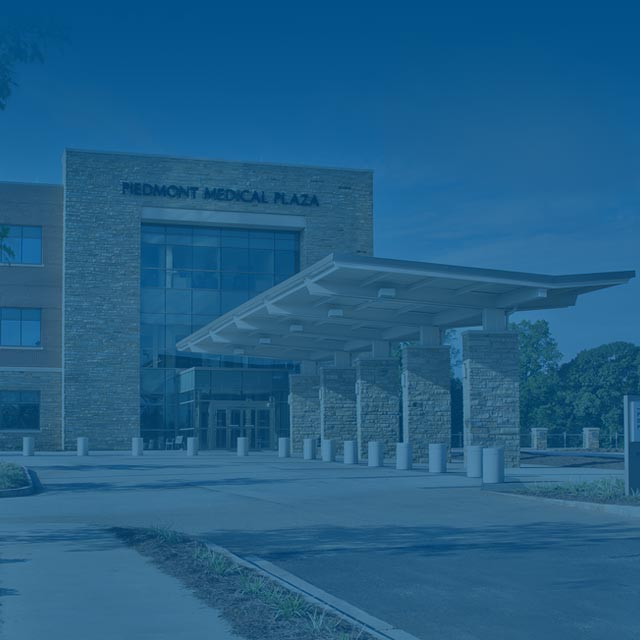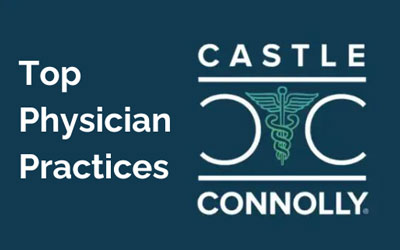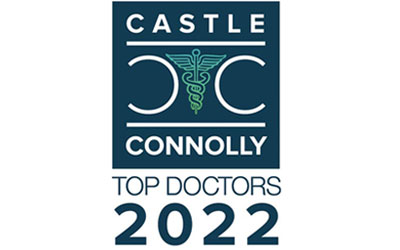Kidney Cancer
General Information About Renal Cell Cancer
Key Points for This Section
- Renal cell cancer is a disease in which malignant (cancer) cells form in tubules of the kidney.
- Smoking and misuse of certain pain medicines can affect the risk of developing renal cell cancer.
- Possible signs of renal cell cancer include blood in the urine and a lump in the abdomen.
- Tests that examine the abdomen and kidneys are used to detect (find) and diagnose renal cell cancer.
- Certain factors affect prognosis (chance of recovery) and treatment options.
Renal cell cancer is a disease in which malignant (cancer) cells form in tubules of the kidney.
Renal cell cancer (also called kidney cancer or renal adenocarcinoma) is a disease in which malignant (cancer) cells are found in the lining of tubules (very small tubes) in the kidney. There are 2 kidneys, one on each side of the backbone, above the waist. The tiny tubules in the kidneys filter and clean the blood, taking out waste products and making urine. The urine passes from each kidney into the bladder through a long tube called a ureter. The bladder stores the urine until it is passed from the body.
Cancer that starts in the ureters or the renal pelvis (the part of the kidney that collects urine and drains it to the ureters) is different from renal cell cancer. (See the PDQ summary on Transitional Cell Cancer of the Renal Pelvis and Ureter Treatment for more information).
Smoking and misuse of certain pain medicines can affect the risk of developing renal cell cancer.
Anything that increases your risk of getting a disease is called a risk factor. Having a risk factor does not mean that you will get cancer; not having risk factors doesn't mean that you will not get cancer. People who think they may be at risk should discuss this with their doctor. Risk factors for renal cell cancer include the following:
- Smoking.
- Misusing certain pain medicines, including over-the-counter pain medicines, for a long time.
- Having certain genetic conditions, such as von Hippel-Lindau disease or hereditary papillary renal cell carcinoma.
Possible signs of renal cell cancer include blood in the urine and a lump in the abdomen.
These and other symptoms may be caused by renal cell cancer. Other conditions may cause the same symptoms. There may be no symptoms in the early stages. Symptoms may appear as the tumor grows. Check with your doctor if you have any of the following:
- Blood in the urine.
- A lump in the abdomen.
- A pain in the side that doesn't go away.
- Loss of appetite.
- Weight loss for no known reason.
- Anemia.
Tests that examine the abdomen and kidneys are used to detect (find) and diagnose renal cell cancer.
The following tests and procedures may be used:
- Physical exam and history: An exam of the body to check general signs of health, including checking for signs of disease, such as lumps or anything else that seems unusual. A history of the patient’s health habits and past illnesses and treatments will also be taken.
- Blood chemistry studies: A procedure in which a blood sample is checked to measure the amounts of certain substances released into the blood by organs and tissues in the body. An unusual (higher or lower than normal) amount of a substance can be a sign of disease in the organ or tissue that makes it.
- Urinalysis: A test to check the color of urine and its contents, such as sugar, protein, red blood cells, and white blood cells.
- Liver function test: A procedure in which a sample of blood is checked to measure the amounts of enzymes released into it by the liver. An abnormal amount of an enzyme can be a sign that cancer has spread to the liver. Certain conditions that are not cancer may also increase liver enzyme levels.
- Intravenous pyelogram (IVP): A series of x-rays of the kidneys, ureters, and bladder to find out if cancer is present in these organs. A contrast dye is injected into a vein. As the contrast dye moves through the kidneys, ureters, and bladder, x-rays are taken to see if there are any blockages.
- Ultrasound exam: A procedure in which high-energy sound waves (ultrasound) are bounced off internal tissues or organs and make echoes. The echoes form a picture of body tissues called a sonogram.
- CT scan (CAT scan): A procedure that makes a series of detailed pictures of areas inside the body, taken from different angles. The pictures are made by a computer linked to an x-ray machine. A dye may be injected into a vein or swallowed to help the organs or tissues show up more clearly. This procedure is also called computed tomography, computerized tomography, or computerized axial tomography.
- MRI (magnetic resonance imaging): A procedure that uses a magnet, radio waves, and a computer to make a series of detailed pictures of areas inside the body. This procedure is also called nuclear magnetic resonance imaging (NMRI).
- Biopsy: The removal of cells or tissues so they can be viewed under a microscope by a pathologist to check for signs of cancer. To do a biopsy for renal cell cancer, a thin needle is inserted into the tumor and a sample of tissue is withdrawn.
Certain factors affect prognosis (chance of recovery) and treatment options.
The prognosis (chance of recovery) and treatment options depend on the following:
- The stage of the disease.
- The patient's age and general health.
Stages of Renal Cell Cancer
Key Points for This Section
- After renal cell cancer has been diagnosed, tests are done to find out if cancer cells have spread within the kidney or to other parts of the body.
- There are three ways that cancer spreads in the body.
- The following stages are used for renal cell cancer:
- Stage I
- Stage II
- Stage III
- Stage IV
After renal cell cancer has been diagnosed, tests are done to find out if cancer cells have spread within the kidney or to other parts of the body.
The process used to find out if cancer has spread within the kidney or to other parts of the body is called staging. The information gathered from the staging process determines the stage of the disease. It is important to know the stage in order to plan treatment. The following tests and procedures may be used in the staging process:
- CT scan (CAT scan): A procedure that makes a series of detailed pictures of areas inside the body, taken from different angles. The pictures are made by a computer linked to an x-ray machine. A dye may be injected into a vein or swallowed to help the organs or tissues show up more clearly. This procedure is also called computed tomography, computerized tomography, or computerized axial tomography.
- MRI (magnetic resonance imaging): A procedure that uses a magnet, radio waves, and a computer to make a series of detailed pictures of areas inside the body. This procedure is also called nuclear magnetic resonance imaging (NMRI).
- Chest x-ray: An x-ray of the organs and bones inside the chest. An x-ray is a type of energy beam that can go through the body and onto film, making a picture of areas inside the body.
- Bone scan: A procedure to check if there are rapidly dividing cells, such as cancer cells, in the bone. A very small amount of radioactive material is injected into a vein and travels through the bloodstream. The radioactive material collects in the bones and is detected by a scanner.
There are three ways that cancer spreads in the body.
The three ways that cancer spreads in the body are:
- Through tissue. Cancer invades the surrounding normal tissue.
- Through the lymph system. Cancer invades the lymph system and travels through the lymph vessels to other places in the body.
- Through the blood. Cancer invades the veins and capillaries and travels through the blood to other places in the body.
When cancer cells break away from the primary (original) tumor and travel through the lymph or blood to other places in the body, another (secondary) tumor may form. This process is called metastasis. The secondary (metastatic) tumor is the same type of cancer as the primary tumor. For example, if breast cancer spreads to the bones, the cancer cells in the bones are actually breast cancer cells. The disease is metastatic breast cancer, not bone cancer.
The following stages are used for renal cell cancer:
Stage I
In stage I, the tumor is 7 centimeters or smaller and is found only in the kidney.
Stage II
In stage II, the tumor is larger than 7 centimeters and is found only in the kidney.
Stage III
In stage III:
- the tumor is any size and cancer is found only in the kidney and in 1 or more nearby lymph nodes; or
- cancer is found in the main blood vessels of the kidney or in the layer of fatty tissue around the kidney. Cancer may be found in 1 or more nearby lymph nodes.
Stage IV
In stage IV, cancer has spread:
- beyond the layer of fatty tissue around the kidney and may be found in the adrenal gland above the kidney with cancer, or in nearby lymph nodes; or
- to other organs, such as the lungs, liver, bones, or brain, and may have spread to lymph nodes.
Recurrent Renal Cell Cancer
Recurrent renal cell cancer is cancer that has recurred (come back) after it has been treated. The cancer may come back many years after initial treatment, in the kidney or in other parts of the body.
Treatment Option Overview
Key Points for This Section
- There are different types of treatment for patients with renal cell cancer.
- Five types of standard treatment are used:
- Surgery
- Radiation therapy
- Chemotherapy
- Biologic therapy
- Targeted therapy
- New types of treatment are being tested in clinical trials.
- Patients may want to think about taking part in a clinical trial.
- Patients can enter clinical trials before, during, or after starting their cancer treatment.
- Follow-up tests may be needed.
There are different types of treatment for patients with renal cell cancer.
Different types of treatments are available for patients with renal cell cancer. Some treatments are standard (the currently used treatment), and some are being tested in clinical trials. A treatment clinical trial is a research study meant to help improve current treatments or obtain information on new treatments for patients with cancer. When clinical trials show that a new treatment is better than the standard treatment, the new treatment may become the standard treatment. Patients may want to think about taking part in a clinical trial. Some clinical trials are open only to patients who have not started treatment.
Five types of standard treatment are used:
Surgery
Surgery to remove part or all of the kidney is often used to treat renal cell cancer. The following types of surgery may be used:
- Partial nephrectomy: A surgical procedure to remove the cancer within the kidney and some of the tissue around it. A partial nephrectomy may be done to prevent loss of kidney function when the other kidney is damaged or has already been removed.
- Simple nephrectomy: A surgical procedure to remove the kidney only.
- Radical nephrectomy: A surgical procedure to remove the kidney, the adrenal gland, surrounding tissue, and, usually, nearby lymph nodes.
A person can live with part of 1 working kidney, but if both kidneys are removed or not working, the person will need dialysis (a procedure to clean the blood using a machine outside of the body) or a kidney transplant (replacement with a healthy donated kidney). A kidney transplant may be done when the disease is in the kidney only and a donated kidney can be found. If the patient has to wait for a donated kidney, other treatment is given as needed.
When surgery to remove the cancer is not possible, a treatment called arterial embolization may be used to shrink the tumor. A small incision is made and a catheter (thin tube) is inserted into the main blood vessel that flows to the kidney. Small pieces of a special gelatin sponge are injected through the catheter into the blood vessel. The sponges block the blood flow to the kidney and prevent the cancer cells from getting oxygen and other substances they need to grow.
Even if the doctor removes all the cancer that can be seen at the time of the surgery, some patients may be given chemotherapy or radiation therapy after surgery to kill any cancer cells that are left. Treatment given after the surgery, to lower the risk that the cancer will come back, is called adjuvant therapy.
Radiation therapy
Radiation therapy is a cancer treatment that uses high-energy x-rays or other types of radiation to kill cancer cells or keep them from growing. There are two types of radiation therapy. External radiation therapy uses a machine outside the body to send radiation toward the cancer. Internal radiation therapy uses a radioactive substance sealed in needles, seeds, wires, or catheters that are placed directly into or near the cancer. The way the radiation therapy is given depends on the type and stage of the cancer being treated.
Chemotherapy
Chemotherapy is a cancer treatment that uses drugs to stop the growth of cancer cells, either by killing the cells or by stopping them from dividing. When chemotherapy is taken by mouth or injected into a vein or muscle, the drugs enter the bloodstream and can reach cancer cells throughout the body (systemic chemotherapy). When chemotherapy is placed directly into the cerebrospinal fluid, an organ, or a body cavity such as the abdomen, the drugs mainly affect cancer cells in those areas (regional chemotherapy). The way the chemotherapy is given depends on the type and stage of the cancer being treated.
Biologic therapy
Biologic therapy is a treatment that uses the patient's immune system to fight cancer. Substances made by the body or made in a laboratory are used to boost, direct, or restore the body's natural defenses against cancer. This type of cancer treatment is also called biotherapy or immunotherapy.
Targeted therapy
Targeted therapy uses drugs or other substances to identify and attack specific cancer cells without harming normal cells. Targeted therapy with antiangiogenic agents are used to treat advanced renal cell cancer. Antiangiogenic agents keep blood vessels from forming in a tumor, causing the tumor to starve and stop growing or to shrink. Monoclonal antibodies and kinase inhibitors are two types of antiangiogenic agents used to treat renal cell cancer.
Monoclonal antibody therapy uses antibodies made in the laboratory, from a single type of immune system cell. These antibodies can identify substances on cancer cells or normal substances that may help cancer cells grow. The antibodies attach to the substances and kill the cancer cells, block their growth, or keep them from spreading. Monoclonal antibodies are given by infusion. They may be used alone or to carry drugs, toxins, or radioactive material directly to cancer cells. Monoclonal antibodies used to treat renal cell cancer attach to and block substances that cause new blood vessels to form in tumors.
Kinase inhibitors stop cells from dividing and may prevent the growth of new blood vessels that tumors need to grow.
New types of treatment are being tested in clinical trials.
Information about clinical trials is available from the NCI Web site.
Patients may want to think about taking part in a clinical trial.
For some patients, taking part in a clinical trial may be the best treatment choice. Clinical trials are part of the cancer research process. Clinical trials are done to find out if new cancer treatments are safe and effective or better than the standard treatment.
Many of today's standard treatments for cancer are based on earlier clinical trials. Patients who take part in a clinical trial may receive the standard treatment or be among the first to receive a new treatment.
Patients who take part in clinical trials also help improve the way cancer will be treated in the future. Even when clinical trials do not lead to effective new treatments, they often answer important questions and help move research forward.
Patients can enter clinical trials before, during, or after starting their cancer treatment.
Some clinical trials only include patients who have not yet received treatment. Other trials test treatments for patients whose cancer has not gotten better. There are also clinical trials that test new ways to stop cancer from recurring (coming back) or reduce the side effects of cancer treatment.
Clinical trials are taking place in many parts of the country. See the Treatment Options section that follows for links to current treatment clinical trials. These have been retrieved from NCI's listing of clinical trials.
Follow-up tests may be needed.
Some of the tests that were done to diagnose the cancer or to find out the stage of the cancer may be repeated. Some tests will be repeated in order to see how well the treatment is working. Decisions about whether to continue, change, or stop treatment may be based on the results of these tests. This is sometimes called re-staging.
Some of the tests will continue to be done from time to time after treatment has ended. The results of these tests can show if your condition has changed or if the cancer has recurred (come back). These tests are sometimes called follow-up tests or check-ups.
Treatment Options for Renal Cell Cancer
A link to a list of current clinical trials is included for each treatment section. For some types or stages of cancer, there may not be any trials listed. Check with your doctor for clinical trials that are not listed here but may be right for you.
Stage I Renal Cell Cancer
Treatment of stage I renal cell cancer may include the following:
- Surgery (radical nephrectomy, simple nephrectomy, or partial nephrectomy).
- Radiation therapy as palliative therapy to relieve symptoms in patients who cannot have surgery.
- Arterial embolization as palliative therapy.
- A clinical trial of a new treatment.
Check for U.S. clinical trials from NCI's list of cancer clinical trials that are now accepting patients with stage I renal cell cancer. For more specific results, refine the search by using other search features, such as the location of the trial, the type of treatment, or the name of the drug. General information about clinical trials is available from the NCI Web site.
Stage II Renal Cell Cancer
Treatment of stage II renal cell cancer may include the following:
- Surgery (radical nephrectomy or partial nephrectomy).
- Surgery (nephrectomy), before or after radiation therapy.
- Radiation therapy as palliative therapy to relieve symptoms in patients who cannot have surgery.
- Arterial embolization as palliative therapy.
- A clinical trial of a new treatment.
Check for U.S. clinical trials from NCI's list of cancer clinical trials that are now accepting patients with stage II renal cell cancer. For more specific results, refine the search by using other search features, such as the location of the trial, the type of treatment, or the name of the drug. General information about clinical trials is available from the NCI Web site.
Stage III Renal Cell Cancer
Treatment of stage III renal cell cancer may include the following:
- Surgery (radical nephrectomy). Blood vessels of the kidney and some lymph nodes may also be removed.
- Arterial embolization followed by surgery (radical nephrectomy).
- Radiation therapy as palliative therapy to relieve symptoms and improve the quality of life.
- Arterial embolization as palliative therapy.
- Surgery (nephrectomy) as palliative therapy.
- Radiation therapy before or after surgery (radical nephrectomy).
- A clinical trial of biologic therapy following surgery.
Check for U.S. clinical trials from NCI's list of cancer clinical trials that are now accepting patients with stage III renal cell cancer. For more specific results, refine the search by using other search features, such as the location of the trial, the type of treatment, or the name of the drug. General information about clinical trials is available from the NCI Web site.
Stage IV and Recurrent Renal Cell Cancer
Treatment of stage IV and recurrent renal cell cancer may include the following:
- Surgery (radical nephrectomy).
- Surgery (nephrectomy) to reduce the size of the tumor.
- Targeted therapy.
- Biologic therapy.
- Radiation therapy as palliative therapy to relieve symptoms and improve the quality of life.
- A clinical trial of a new treatment.
Check for U.S. clinical trials from NCI's list of cancer clinical trials that are now accepting patients with stage IV renal cell cancer and recurrent renal cell cancer. For more specific results, refine the search by using other search features, such as the location of the trial, the type of treatment, or the name of the drug. General information about clinical trials is available from the NCI Web site.
To Learn More About Renal Cell Cancer
For more information from the National Cancer Institute about renal cell cancer, see the following:
- Kidney Cancer Home Page
- What You Need to Know About™ Kidney Cancer
- Understanding Cancer Series: Angiogenesis
- Understanding Cancer Series: Gene Testing
- Smoking and Cancer Home Page (Includes help with quitting)
- Biological Therapies for Cancer: Questions and Answers
- Angiogenesis Inhibitors Therapy: Questions and Answers
- Advances in Targeted Therapies
For general cancer information and other resources from the National Cancer Institute, see the following:
- What You Need to Know About™ Cancer
- Understanding Cancer Series: Cancer
- Cancer Staging
- Chemotherapy and You: Support for People With Cancer
- Radiation Therapy and You: Support for People With Cancer
- Coping with Cancer: Supportive and Palliative Care
- Cancer Library
- Information For Survivors/Caregivers/Advocates
For more information about Kidney Cancer, please visit the National Cancer Institute.
























